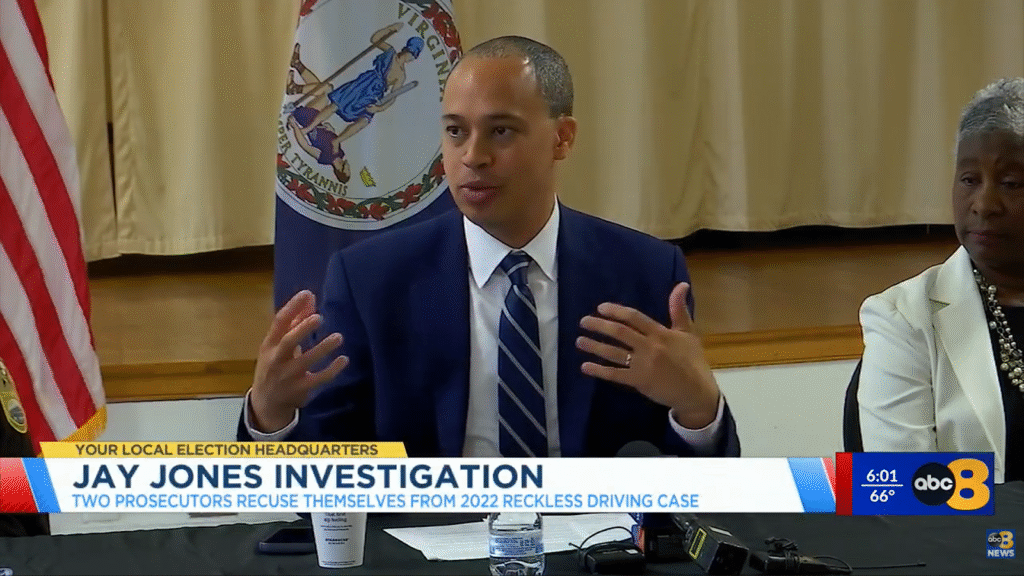This article examines allegations that court-ordered community service tied to Jay Jones may have been used for political advantage, and it lays out the implications for accountability, transparency, and public trust. It looks at how service hours can be diverted into partisan activity, why that matters to voters and taxpayers, and what questions should be asked about oversight and enforcement. The piece keeps a Republican perspective, stressing fairness and responsibility in public life.
It looks like much of Jay Jones’ court-mandated community service hours were spent advancing his and Democrats’ political interests. That sentence captures the core allegation and must be taken seriously because court-mandated service is meant to repay the public, not to build political capital. If true, this would be a misuse of a corrective measure and a breach of public trust. Voters expect penalties to be corrective, not opportunistic.
Public service should be straightforward: help the community, learn from mistakes, move on. When those hours get repurposed into campaign or partisan activities, the line between accountability and advantage disappears. That shift favors those with political connections and undermines the rule of law. Conservatives argue equality before the law means consequences should not be convertible into political gain.
Transparency about how court-ordered service is fulfilled matters for taxpayers. Records should show where time was spent, with whom, and for what purpose. If an elected official or former officeholder used mandated hours at partisan events, that should appear in documentation. Without clear records, suspicions of favoritism or inside dealing grow.
There’s also a fairness issue for nonpolitical volunteers and community organizations. Groups that accept volunteers expecting honest help could be misled if those volunteers are really there to drum up support. Genuine nonprofit work can be disrupted when political activity is mixed in, and organizations deserve to know the intent of volunteers. Conservative voices emphasize protecting the integrity of civic institutions from being co-opted.
Legal and procedural questions follow from the allegation. Who approved the service placements and what criteria were used? Were supervising officials aware of political activities tied to the hours? If the court or supervising agency signed off without due diligence, that raises concerns about oversight. Republicans typically call for audits to ensure standards were followed and laws were respected.
Courts set community service as a corrective tool, often with specific conditions. When those conditions are skirted or reinterpreted to suit partisan goals, the corrective purpose is nullified. The credibility of the justice system takes a hit when outcomes look uneven. Maintaining faith in legal remedies depends on consistent application across all citizens.
Political ramifications are immediate and practical. Opponents will use any appearance of impropriety to question judgment and ethics, which is fair game in the public arena. At the same time, supporters will defend the actions, pointing to intent or context, making the controversy a he-said-she-said battle. Still, the core problem remains: accountability must not be optional for those with connections.
Media scrutiny will focus on specifics: dates, locations, supervisors, and whether partisan symbols or events were part of the service. Those details determine whether the issue is a misunderstanding or a pattern of misconduct. Conservatives press for full disclosure because transparency is the best way to restore confidence. If the records clear Jones, that should be visible and verifiable.
Beyond paperwork, the cultural lesson is about norms. Public penalties shouldn’t be turned into perks, and civic repair should be more than a checkbox. A healthy political environment depends on leaders who accept consequences without turning them into advantages. That principle matters regardless of party, but conservative commentary stresses adherence to law and equal treatment as foundations of stable governance.
If investigations reveal misuse, corrective measures should follow to prevent recurrence, including clearer oversight and stricter enforcement of service conditions. If the records show compliance, then transparency will have done its job by settling doubts. Either way, the public has the right to know how court-ordered service was carried out when officials are involved.
The larger takeaway is simple: accountability has to be real, not ornamental. Community service exists to repair, not to campaign, and preserving that distinction protects both charities and the justice system. Americans deserve clarity and fairness when those in the public eye are held to account.



